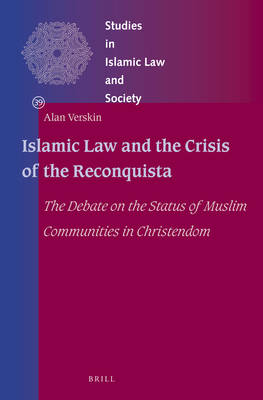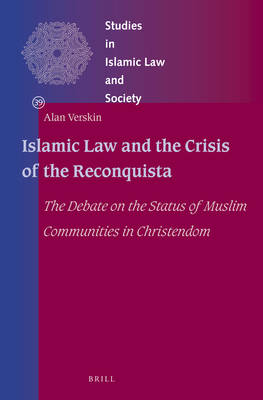
- Afhalen na 1 uur in een winkel met voorraad
- Gratis thuislevering in België vanaf € 30
- Ruim aanbod met 7 miljoen producten
- Afhalen na 1 uur in een winkel met voorraad
- Gratis thuislevering in België vanaf € 30
- Ruim aanbod met 7 miljoen producten
Zoeken
Islamic Law and the Crisis of the Reconquista
The Debate on the Status of Muslim Communities in Christendom
Alan Verskin
€ 210,95
+ 421 punten
Omschrijving
The Reconquista left unprecedentedly large numbers of Muslims living under Christian rule. Since Islamic religious and legal institutions had been developed by scholars who lived under Muslim rule and who assumed this condition as a given, how Muslims should proceed in the absence of such rule became the subject of extensive intellectual investigation. In Islamic Law and the Crisis of the Reconquista, Alan Verskin examines the way in which the Iberian school of Mālikī law developed in response to the political, theological, and practical difficulties posed by the Reconquista. He shows how religious concepts, even those very central to the Islamic religious experience, could be rethought and reinterpreted in order to respond to the changing needs of Muslims.
Specificaties
Betrokkenen
- Auteur(s):
- Uitgeverij:
Inhoud
- Aantal bladzijden:
- 212
- Taal:
- Engels
- Reeks:
- Reeksnummer:
- nr. 39
Eigenschappen
- Productcode (EAN):
- 9789004283190
- Verschijningsdatum:
- 20/01/2015
- Uitvoering:
- Hardcover
- Formaat:
- Genaaid
- Afmetingen:
- 160 mm x 239 mm
- Gewicht:
- 458 g

Alleen bij Standaard Boekhandel
+ 421 punten op je klantenkaart van Standaard Boekhandel
Beoordelingen
We publiceren alleen reviews die voldoen aan de voorwaarden voor reviews. Bekijk onze voorwaarden voor reviews.











